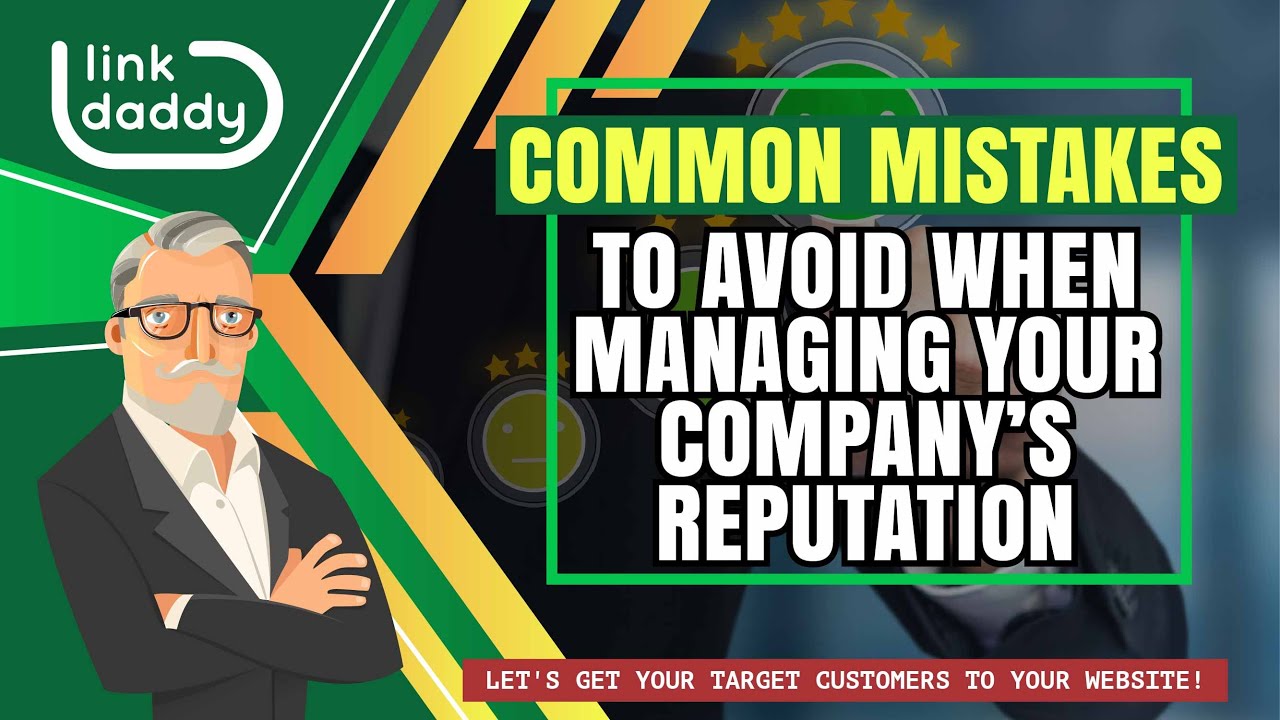In today's digital world, the internet has become the primary source of information for businesses and individuals. However, with the vast amount of information available online, it's becoming increasingly challenging to manage and control one's online reputation. SEOreputation managementis essential for businesses and individuals who want to maintain a positive online image.
Negative reviews, comments, or contentcan have a severe impact on an individual or business's reputation. This is where SEOreputation management comes in. It's a process of monitoring and controlling how your brand or name is perceived online.
What Is SEO Reputation Management?

SEO Reputation Management | Digital Marketing 101
SEOReputation Management is the process of monitoring and controlling how a person or a brand is perceived online using search engine optimization(SEO) techniques. It involves analyzing search engineresults pages (SERPs), monitoring online mentions, addressing negative feedback, promoting positive content, and using other SEO strategies to maintain a positive online image.
The goal of SEO reputation management is to improve a person or brand's search engine rankings, while simultaneously pushing down negative content and promoting positive content to maintain a positive online reputation.
Why Is SEO Reputation Management Important?
SEO Reputation Management is essential for individuals and businesses to maintain a positive online image. In today's digital world, people often research brands and individuals online before making decisions. Negative reviews, comments, or content can have a significant impact on a person or business's reputation, potentially resulting in lost customers or opportunities.
SEO Reputation Management can help businesses and individuals address negative content, promote positive content, and maintain a positive online reputation. By utilizing various SEO techniques to improve search engine rankings, businesses, and individuals can improve their online visibility, build customer trust, and maintain a positive online image.
How Does SEO Reputation Management Work?
SEO Reputation Management works by utilizing search engine optimization techniques to improve your online reputation and manage your brand image. Here's how it works:
- Identify your online reputation - The first step in SEO Reputation Management is to identify your current online reputation. This involves conducting an audit of your brand's online presence to identify any negative content that could harm your reputation.
- Develop a strategy - Based on the audit, you can develop a strategy to improve your online reputation. This can include creating positive content, responding to negative reviews, and utilizing SEO techniques to improve your search engine rankings.
- Monitor your online presence- Monitor your online presence regularly to identify any new negative content that could harm your reputation. This can be done using Google Alerts, online reputation management tools, or simply conducting regular searches.
- Create positive content- Creating positive content is an effective way to push down negative content on search engine results pages (SERPs) and improve your online reputation. This can be done by creating blog posts, videos, or social media contentthat highlights your brand's values and positive aspects.
- Respond to negative reviews- Responding to negative reviews is an important strategy for SEO Reputation Management. This involves apologizing, empathizing, and providing a solution to the customer's issue.
- Utilize SEO techniques- Utilizing SEO techniques can help to improve your search engine rankings and increase your online visibility. This can be done by optimizing your website, creating quality backlinks, and monitoring your keywords.
Strategies For SEO Reputation Management
Monitor Your Online Presence

How to monitor your brand’s online presence
The first step in managing your online reputation is monitoring your brand's presence on the internet. This includes regularly checking search engine results, social mediaplatforms, and review websites. By monitoring these channels, you can quickly identify any negative content or reviews and address them promptly.
- Set up Google Alerts- Google Alerts is a free tool that sends you email notifications whenever your brand or name is mentioned online. This allows you to track any mentions of your brand or name and quickly address any negative content.
- Monitor social media- Social media platforms like Facebook, Twitter, and LinkedIn are popular channels for people to share their opinions about brands and individuals. Monitor these platforms regularly to identify any negative comments or reviews that could harm your reputation.
- Use online reputation management tools- There are several online reputation management tools available that can help you monitor your online presence. These tools track mentions of your brand or name across multiple platforms, including social media, blogs, and news articles.
- Conduct regular searches- Conducting regular searches for your brand or name on search engines like Google or Bing is another effective way to monitor your online presence. Use different variations of your name or brand to identify any negative content that could be hidden under a different name or keyword.
Create Positive Content
Creating and publishing positive content is an effective way to push down negative search results. This includes creating a website, blog, social media profiles, and other digital assets that showcase your brand's positive aspects. By optimizing this content with relevant keywords, you can increase its visibility in the SERPs and improve your brand's online image.
- Develop a content strategy- Develop a content strategy that aligns with your brand's values and goals. This includes creating content that is relevant, informative, and engaging to your target audience.
- Use search engine optimization (SEO)- Use SEO techniques to optimize your content for search engines. This includes using relevant keywords, meta descriptions, and alt tags.
- Use social media- Use social media platforms like Facebook, Twitter, and Instagram to promote your positive content. Share your blog posts, videos, and other content to increase visibility and engagement.
- Encourage user-generated content- Encourage your customers or followers to share their positive experiences with your brand. This can be in the form of reviews, testimonials, or social media posts.
Respond To Negative Reviews

How to Handle Negative Online Reviews of Your Business
Responding to negative reviews is an essential aspect of reputation management. It shows that you care about your customer's feedback and are willing to address their concerns. Responding promptly and professionally can also help to mitigate the impact of negative reviews on your brand's reputation.
- Be timely- Respond to negative reviews as soon as possible to show that you care about your customer's feedback.
- Apologize and empathize: Apologize for any negative experiences your customer had and show empathy for their situation.
- Provide a solution: Provide a solution or offer to make things right for your customer. This could be a refund, a discount, or any other appropriate resolution.
- Keep it professional: Keep your response professional and avoid getting defensive or confrontational.
Utilize SEO Techniques
Utilizing SEO techniques such as link building, keyword optimization, and on-page optimization can help improve the visibility of positive content and push down negative content. It's essential to work with an experienced SEO specialist who understands the nuances of reputation management and can develop an effective strategy for your brand.
- Optimize your website- Ensure that your website is optimized for search engines by using relevant keywords, meta descriptions, and title tags. This will help search engines understand the content on your website and improve your search engine rankings.
- Create quality backlinks- Building quality backlinks from authoritative websites can improve your search engine rankings and increase your online visibility. This can be done by guest posting, creating infographics, or participating in industry-related forums.
- Use social media- Use social media platforms like Facebook, Twitter, and Instagram to promote your positive content and engage with your audience. This can help to increase your online visibility and improve your search engine rankings.
- Monitor your keywords- Monitor your keywords regularly to identify any negative content that could harm your reputation. This can be done using Google Alerts, online reputation management tools, or simply conducting regular searches.
- Optimize your local search- Optimize your local search by creating a Google My Business profile and ensuring that your business information is accurate and up-to-date. This can help to improve your search engine rankings for local search queries.
Common Mistakes In SEO Reputation Management

Common Mistakes to Avoid When Managing Your Company’s Reputation
SEO Reputation Management is an important aspect of online branding, but there are some common mistakes that can harm your efforts. Here are some of the most common mistakes to avoid:
- Ignoring negative reviews- Ignoring negative reviews can harm your online reputation. It's important to respond to negative reviews in a timely and professional manner.
- Focusing too much on SEO- While SEO is an important part of online reputation management, it shouldn't be the only focus. Creating positive content and engaging with your audience are also important strategies.
- Overreacting to negative feedback - Overreacting to negative feedback can make the situation worse. It's important to remain calm and professional when responding to negative feedback.
- Being inconsistent - Inconsistent messaging or brandingcan harm your online reputation. It's important to maintain consistency across all online platforms.
- Neglecting your online presence- Neglecting your online presence can harm your online reputation. It's important to regularly monitor your online presence and engage with your audience.
- Being dishonest- Being dishonest or misleading can harm your online reputation. It's important to be truthful and transparent in all communications.
People Also Ask
What Is Online Reputation Management (ORM)?
Online reputation management (ORM) is the process of monitoring, tracking, and improving how a person or a brand is perceived online. It involves various strategies to maintain a positive online reputation, including monitoring online mentions, addressing negative feedback, and promoting positive content.
What Are The Benefits Of SEO Reputation Management?
SEO reputation management provides several benefits, including protecting your brand's reputation, boosting sales, increasing brand visibility, and maintaining a positive online image. By addressing negative content and promoting positive content, SEO reputation management can help businesses and individuals maintain a positive online reputation.
How Long Does It Take To See Results From SEO Reputation Management?
The timeline for seeing results from SEO reputation management varies depending on the severity of the negative content and the effectiveness of the SEO strategies implemented. Generally, it can take several weeks to several months to see significant improvements in search engine rankings.
Conclusion
SEO reputation management is a crucial aspect of managing one's online presence. Maintaining a positive online reputation is essential for businesses and individuals to succeed in today's digital age. By implementing effective SEO reputation management strategies, businesses and individuals can improve their online visibility and maintain a positive reputation.